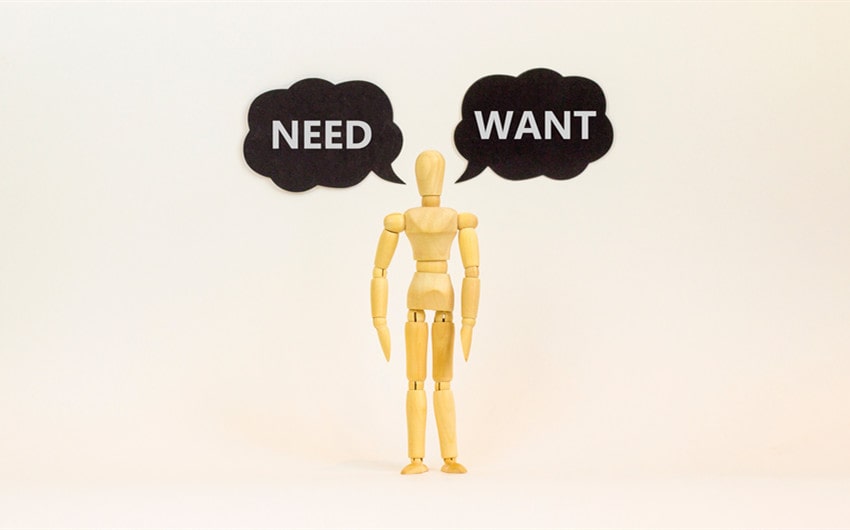Wants vs Needs: Making Smart Choices for a Balanced Life
We all make daily decisions about what we buy, do, and prioritize in life. But sometimes, it’s easy to get caught up in what we want rather than what we need. Understanding the difference between wants vs needs is crucial for making smarter choices that support your well-being and happiness.
Whether you’re managing your finances, planning for the future, or simply trying to live more intentionally, knowing how to balance the two can make all the difference. Let’s explore how you can identify and balance these to improve your life decisions.
What Are Wants?
Wants are the things we desire but don’t necessarily need for survival or basic well-being. They are often influenced by personal preferences, emotions, and societal trends. For example, you might want the latest smartphone, a fancy meal at a restaurant, or a vacation to an exotic location. While these things can bring enjoyment or satisfaction, they are not essential for living. Wants are often driven by our feelings of pleasure, status, or comfort, and they can vary from person to person.
Wants can sometimes feel urgent, especially with constant exposure to advertising and social media. Many times, we mistake these desires as things we must have, but in reality, wants are often about enhancing our lives rather than sustaining them. It’s important to recognize that while fulfilling wants can bring happiness, it’s not always long-lasting or deeply satisfying, especially if it comes at the expense of what we truly need.
What Are Needs?
Needs, on the other hand, are the essentials required for survival and basic well-being. These are the things you can’t live without, like food, water, shelter, and healthcare. Needs provide security, safety, and the foundation to function daily. Without fulfilling your basic needs, it becomes impossible to focus on other areas of life, such as career growth, relationships, or personal goals.
Beyond physical needs, emotional needs like love, connection, and self-worth are also vital for overall well-being. These emotional needs allow you to build meaningful relationships and maintain a healthy mental state. Unlike wants, which can vary in urgency, needs are non-negotiable and must be met for a person to lead a stable, healthy life. Ignoring these can lead to negative consequences, from physical health issues to emotional burnout.

How to Differentiate Between Wants and Needs
The line between wants and needs can sometimes blur, but a few key strategies can help you tell the difference. Start by asking yourself, “Will this improve my quality of life or is it simply something I’d enjoy having?” Needs improve your survival and well-being—things like paying rent, buying groceries, or seeking medical care. Wants, on the other hand, tend to bring temporary pleasure, like purchasing a designer handbag or upgrading to the newest gadget.
Another way to differentiate is to evaluate your situation in terms of urgency. Needs tend to be urgent and immediate, while wants can often be postponed without any real harm. For example, you may need transportation to get to work, but whether that transportation comes in the form of a basic car or a luxury vehicle is where the distinction lies between a need and a want. Being mindful of these differences can help you make more balanced, informed decisions.
Lastly, reflect on how you feel when a want or need is unmet. If a need goes unaddressed, it usually leads to serious consequences, like hunger, stress, or emotional instability. If a want is unfulfilled, it might lead to temporary disappointment, but your life continues without significant disruption. Recognizing this difference can help you prioritize what truly matters.
The Impact of Confusing Wants with Needs
Confusing wants with needs can lead to various negative consequences in both your personal and financial life. When you prioritize desires over essentials, it’s easy to find yourself facing stress and instability. Here are a few ways this confusion can impact you:
1. Financial Strain
One of the most significant consequences of confusing wants with needs is financial strain. When you spend money on things you want—like dining out frequently, buying luxury items, or splurging on the latest tech—without considering whether those expenses are truly necessary, it can quickly lead to debt or financial instability. If your budget doesn’t account for long-term financial responsibilities, such as rent, savings, or healthcare, you may find yourself short on funds when it matters most.
Overspending on wants can also derail financial goals like building an emergency fund or saving for retirement. Focusing too much on instant gratification may cause you to lose sight of your long-term security and stability, putting unnecessary stress on your finances.
2. Emotional Stress and Dissatisfaction
When you confuse wants with needs, you may find yourself constantly chasing after the next thing, believing it will make you happier. This can lead to emotional stress, as the satisfaction from fulfilling wants is often short-lived. For example, buying a new gadget or a fancy outfit may bring temporary excitement, but that feeling fades quickly. Over time, this can result in a cycle of dissatisfaction, where you continually seek out more wants, thinking they will fill an emotional void.
Moreover, neglecting your true needs—such as emotional well-being, health, or connection with others—can lead to deeper emotional distress. When basic needs are ignored, it becomes difficult to achieve lasting happiness, no matter how many wants you fulfill.
3. Misaligned Priorities
Another significant impact of confusing wants with needs is misaligned priorities. When you focus too much on acquiring material things or chasing superficial desires, you may neglect the aspects of life that genuinely contribute to your well-being. For example, instead of investing time in relationships or personal growth, you might find yourself more concerned with keeping up with trends or appearances.
This misalignment can result in a feeling of emptiness or a lack of purpose. By placing wants above needs, you may neglect areas of your life that contribute to long-term happiness and fulfillment, such as health, self-care, or emotional stability.
4. Influence of Advertising and Social Media
Advertising and social media play a huge role in blurring the line between wants and needs. Companies and influencers are constantly promoting products and lifestyles designed to make you feel like you need certain things to fit in or feel successful. This often leads to unnecessary purchases, as we start to believe that these wants are essential for our happiness or sense of belonging.
The constant exposure to material goods and idealized lifestyles can distort your perspective, making it harder to distinguish between what you truly need and what society has conditioned you to want. If you’re not mindful of this influence, it’s easy to get caught up in an endless cycle of consumerism, chasing after wants that don’t bring long-term satisfaction.
5. Difficulty Achieving Long-Term Goals
Confusing wants with needs can also make it harder to achieve long-term goals. When immediate gratification takes priority over essential investments, you may struggle to stay on track with saving money, advancing in your career, or maintaining a healthy lifestyle. For instance, spending money on luxuries instead of investing in education, health, or a business venture can limit your opportunities for growth and success.
In the long run, the habit of prioritizing wants over needs can prevent you from reaching milestones that require discipline, patience, and mindful decision-making. Learning to differentiate between the two helps create a solid foundation for achieving your future goals.
Creating a Balanced Approach
Balancing your wants and needs is crucial for maintaining both financial stability and personal happiness. It’s not about completely denying yourself the things you want, but about managing them in a way that doesn’t overshadow your essential needs. Here are a few strategies to help you strike that balance:
1. Prioritize Needs First
The first step to creating a balanced approach is always making sure your basic needs are met before addressing any wants. This means budgeting for rent, food, healthcare, and other essentials before considering discretionary spending. By ensuring that your needs are taken care of, you create a solid foundation for financial security and overall well-being.
After your needs are covered, you can allocate a portion of your income to fulfilling your wants. This way, you can enjoy your desires without compromising your stability.
2. Budget for Wants
Rather than denying your wants entirely, try incorporating them into your budget in a controlled way. Set aside a specific amount each month for non-essential spending. This approach allows you to indulge in things you enjoy, like dining out or buying new clothes, without feeling guilty or financially stretched.
Having a designated “wants” budget keeps your discretionary spending in check, helping you avoid impulse buying that could otherwise disrupt your financial goals.
3. Practice Delayed Gratification
Learning to delay gratification can be a powerful tool for managing your wants. Instead of making impulsive purchases, try waiting a few days or weeks before deciding if you truly want something. Often, the initial desire fades, and you may realize that the item or experience wasn’t as important as it seemed in the moment.
By practicing delayed gratification, you give yourself time to reflect on whether a want is worth the investment, making it easier to focus on what truly matters.
4. Focus on Long-Term Happiness
While it’s tempting to fulfill immediate desires, it’s essential to think about long-term happiness. Many wants provide short-lived satisfaction, while investing in your needs contributes to sustained well-being. For example, focusing on your health, personal development, and relationships will bring greater fulfillment in the long run compared to momentary pleasures like shopping sprees or expensive gadgets.
By prioritizing long-term happiness, you can strike a healthy balance between satisfying your wants and meeting your essential needs.
Wants vs Needs in Relationships and Personal Growth
Understanding the difference between wants and needs extends beyond finances—it also plays a vital role in relationships and personal development. Distinguishing between emotional wants and needs can lead to more fulfilling relationships and a stronger sense of self.
1. Emotional Needs in Relationships
In any relationship, it’s important to recognize your emotional needs and communicate them clearly. Emotional needs—such as feeling respected, loved, supported, and valued—are essential for a healthy relationship. When these needs aren’t met, it can lead to frustration and dissatisfaction.
However, many people confuse emotional wants with needs. For instance, wanting constant attention or expecting your partner to fulfill all your happiness might be a want rather than a need. It’s important to understand that while it’s okay to desire certain things from your partner, these desires shouldn’t overshadow the fundamental emotional needs that are crucial for a strong connection.
By distinguishing between wants and needs in relationships, you can foster healthier dynamics where both partners feel emotionally fulfilled without placing unrealistic expectations on one another.
2. Balancing Personal Growth with Desires
When it comes to personal growth, understanding the difference between wants and needs is just as essential. Personal needs—such as a sense of purpose, self-worth, and emotional well-being—are critical for long-term happiness. However, it’s easy to get caught up in short-term desires that distract from real growth.
For example, you may want to avoid discomfort and take the easy path, but true personal development often requires challenging yourself and stepping outside your comfort zone. Whether it’s pursuing education, developing new skills, or focusing on mental health, fulfilling your personal needs will lead to deeper satisfaction than merely chasing surface-level desires.
By focusing on what you truly need for self-improvement, such as growth opportunities and emotional resilience, you’ll be better equipped to navigate life’s challenges and achieve long-term success.
3. Healthy Boundaries Between Wants and Needs in Relationships
In relationships, it’s vital to establish boundaries between wants and needs. Recognizing your partner’s needs and distinguishing them from their wants allows for mutual respect and a balanced partnership. For example, a need for emotional support is something that should be prioritized, but a want for constant approval might be unrealistic and put unnecessary pressure on the relationship.
Similarly, in personal growth, it’s important to set boundaries for yourself—understanding when to invest in your needs versus indulging in wants. Setting these boundaries helps you stay focused on what truly matters while still allowing room for enjoyment and personal desires.
By maintaining healthy boundaries and focusing on core needs, you create stronger, more resilient relationships and personal growth experiences.







